














Samuel Yelverton, MD, board certified general surgeon at Lakewood Ranch Medical Center addresses questions related to a common digestive disorder.
Q: WHAT IS GERD?
A: GERD is a gastroesophageal reflux disease, a digestive disorder, caused by either a hiatal hernia or faulty valve between the esophagus and stomach (the lower esophageal sphincter). When the sphincter is too relaxed, stomach acid flows backward causing reflux. This may cause the esophagus to become irritated, and it can result in a painful burning sensation in the throat and chest.
GERD affects approximately 1 in 5 adults in the U.S. at least weekly.* While more common in people older than 40, it can affect people of any age, according to Dr. Yelverton.
Q: WHAT ARE COMMON SYMPTOMS OF GERD?
A: The most common symptoms are heartburn, chest pain, upper abdominal pain, nausea, vomiting, coughing, sore throat, weight loss and difficulty swallowing.
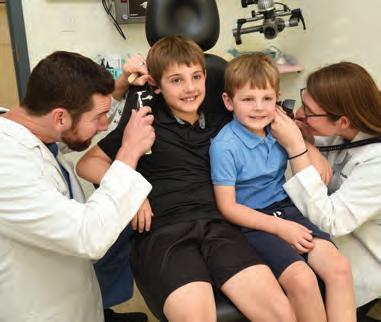
Q: HOW IS GERD DIAGNOSED?
A: Your physician can make a diagnosis based on your symptoms and provide a treatment plan. However, if symptoms do not improve, your doctor might order further testing.
Q: WHAT IS A HIATAL HERNIA AND HOW IS IT RELATED TO REFLUX?
A: A hiatal hernia is a defect in the diaphragm muscle in which the stomach bulges through into the chest. Any size hiatal hernia can allow food and acid to back up causing reflux.
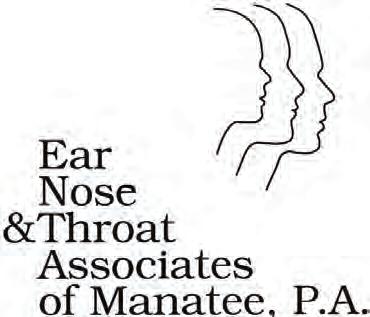

Q: WHAT ARE THE TREATMENT OPTIONS?
A: Your physician may recommend an approach that surgically addresses both hiatal hernia and GERD. The two-part procedure includes a a hiatal hernia repair with concomitant transoral incisionless fundoplication or cTIF.
Q: HOW SAFE AND EFFECTIVE ARE THESE TREATMENTS?
A: The procedure may offer less complications with similar results compared to the traditional hiatal hernia repair and older techniques used for antireflux surgery.** Need a Doctor? Visit doctors. lakewoodranchmedicalgroup.com
*https://www.va.gov/WHOLEHEALTHLIBRARY/tools/gastroesophageal-reflux-disease-gerd.asp
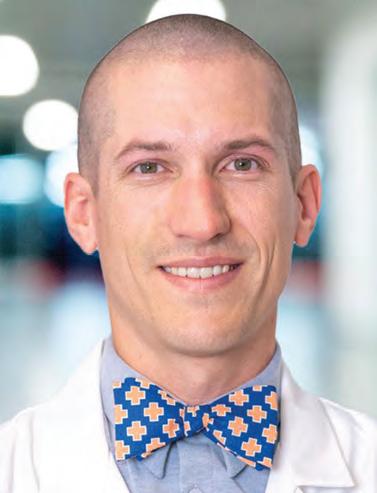

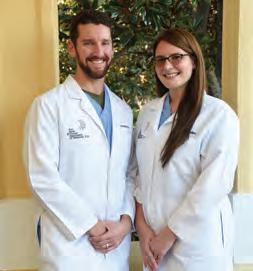







By Christopher Sforzo, M.D. Board-Certified, Fellowship Trained, Orthopedic Surgeon

Pickleball has taken Sarasota, and the nation, by storm. I play pickleball myself, so I understand how fun and addictive it can be. It’s a great way to stay active, connected, and fit. But playing smart is what keeps you in the game.
As an orthopedic and sports medicine practice, we’re thrilled to see so many of our patients getting active with the game. But as the sport continues to grow, so do the number of injuries we treat each week. They range from minor strains to fractures that sometimes require surgery.
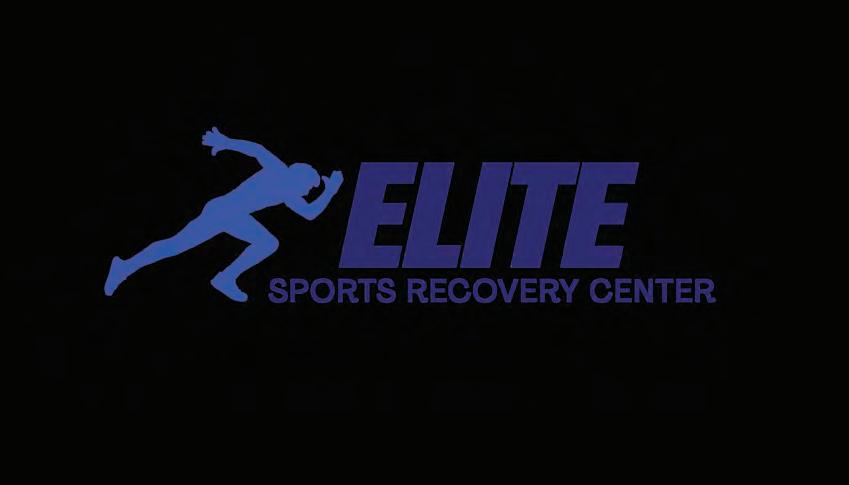
The most common pickleball injury I see is a wrist fracture. It usually happens when a player lunges for a ball, loses balance, and instinctively tries to break the fall with an outstretched hand. As a hand, elbow and shoulder doctor, I treat several of these injuries every week. We also see a steady rise in knee pain, muscle strains, sprains, and tendon injuries caused by the quick stops, side-to-side movement, and twisting that are part of every game.
The good news is many of these injuries can be avoided. A simple warm-up can go a long way. Start with light stretches, arm circles, and lateral lunges to prep the muscles and joints that power your game. Also important are proper court shoes, staying hydrated, and taking breaks.
If you do get hurt, remember these guidelines: Soreness is fine, but don’t ignore swelling, an inability to bear weight, or visible deformities. Getting evaluated within 24-48 hours can
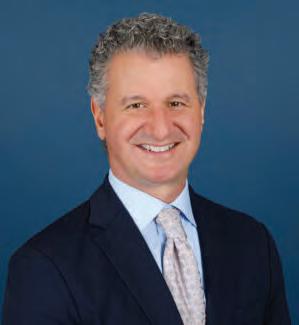
Pickleball is a great way to stay active, connected, and fitbut playing smart is what keeps you in the game.
-
Christopher Sforzo, M.D. Board-Certified Orthopedic Surgeon
make all the difference in healing and preventing further injury.
At Sforzo | Dillingham | Stewart Orthopedics + Sports Medicine, we provide the full spectrum of care from bracing, physical therapy, cortisone injections, and PRP (platelet-rich plasma), to minimally invasive and advanced surgical procedures when necessary.
Whether you need a hand, elbow or shoulder doctor, a foot and ankle specialist, or a hip or knee expert, our Sarasota orthopedic team is fully equipped to meet your needs. While learning how to avoid injury is always the best first step, sometimes things don’t go as planned. When that happens, don’t wait. Our compassionate team is here to help you heal quickly and safely, so you can get back on the court and back to doing what you love.
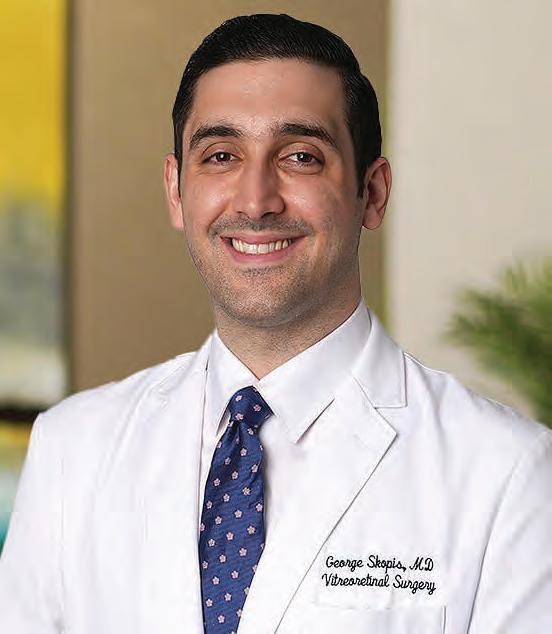
When patients walk into Dr. Skopis’s office at Retina Group of Florida (RGF), they’re often scared and unsure of what a diagnosis like diabetic retinopathy or macular degeneration really means. “My first goal is to help patients feel seen and supported,” he says. “Vision loss doesn’t just change how you see; it changes how you live.”
Fear is a natural response when something threatens your vision—but it’s also a signal to act quickly. Some retinal conditions can cause irreversible vision loss if not treated right away. That’s why RGF always has a retina specialist on call—to make sure you get the expert care you need when time matters most.
At the new RGF office in Lakewood Ranch, patients not only benefit from state-of-the-art imaging and diagnostics but also something just as vital: time.
“We get to sit down, examine the eyes, and explain what’s happening in the rest of the body, especially in diabetic patients,” says Dr. Skopis.
The eyes, he explains, are a window into a person’s overall health. “It’s the only place in the body where we can actually see blood vessels and nerves.” Changes in the eyes can reveal how a patient’s diabetes is also affecting other organs, such as the kidneys, heart, or brain. “It’s our job to explain that and help prevent further harm.”
Treatment may involve injections, laser therapies, or surgery, but education comes first. “Patients with diabetic retinopathy often think, ‘If I can still see, everything must be okay.’ But early changes don’t always cause symptoms. That’s why regular checkups and systemic control, including blood sugar, blood pressure, and cholesterol, are the foundation of ongoing care.”
For Dr. Skopis, no matter the eye problem, the work goes beyond procedures. “My ethos is about preserving not just vision, but quality of life. I want to help people stay independent and connected to the things and people they love.” It’s also a team effort. “We collaborate closely with primary care doctors and specialists. We don’t treat in isolation, because patients, and the biology of the body, don’t exist in isolation.”
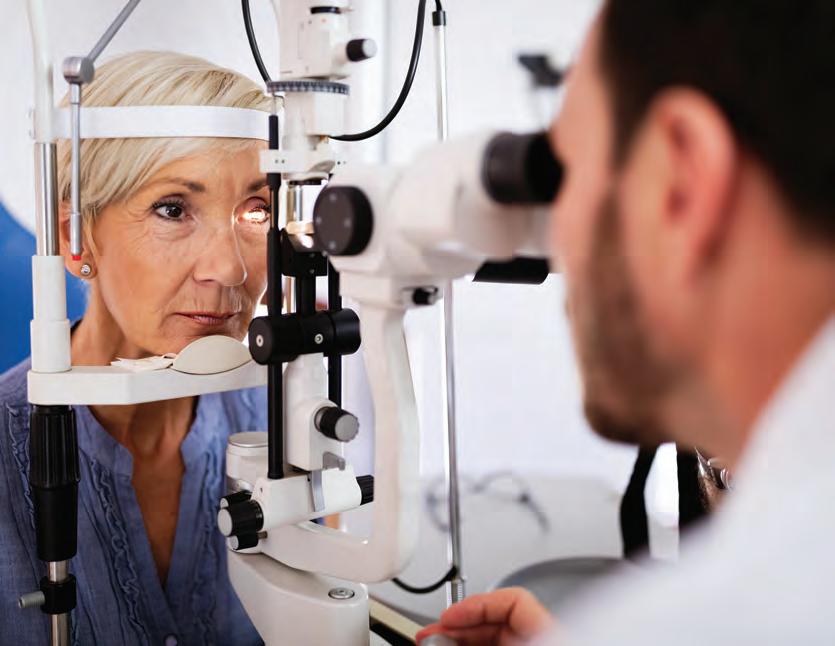
At RGF Lakewood Ranch, patients find more than cutting-edge care. They find a partner in their journey, someone who listens, understands, educates, and then acts. “We go from diagnosis to treatment very quickly,” says Dr. Skopis. “But we start with trust.”









